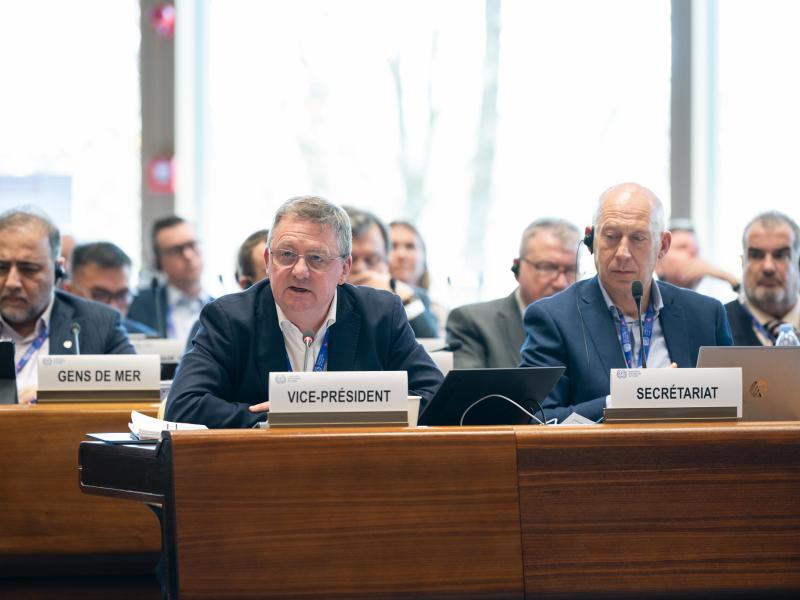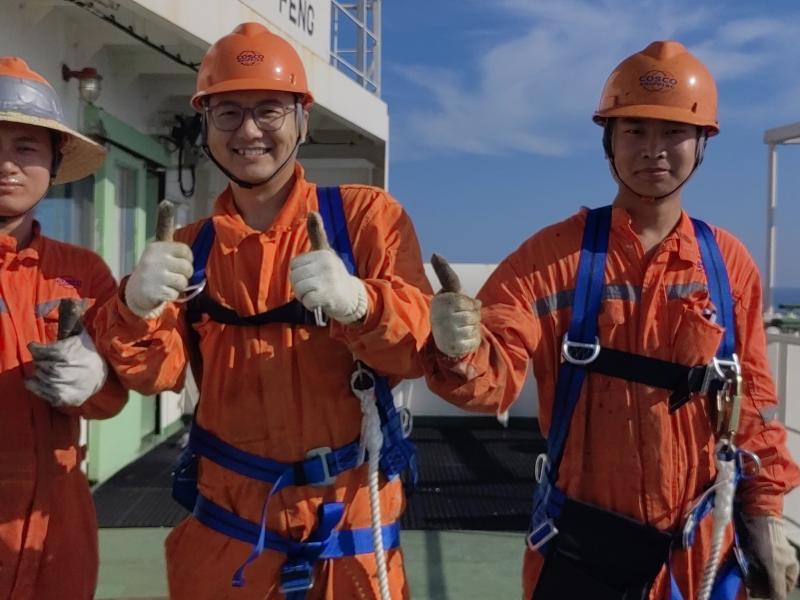Trade unions from around the world join ILO and IMO meeting to advance measures to combat seafarer criminalisation and unfair treatment.
Seafarers must be treated fairly and not subjected to unjust criminalisation or unfair treatment – that is the message that was delivered to governments from around the world gathered in Geneva this week.
The International Transport Workers’ Federation (ITF) joined global seafarers’ union affiliates at the ‘Third meeting of the Joint ILO–IMO Tripartite Working Group to Identify and Address Seafarers’ Issues and the Human Element’.
The meeting had the specific aim of discussing and adopting ‘Guidelines on the fair treatment of seafarers detained on suspicion of committing crimes’.
“Time and again, we have seen cases where seafarers are treated like criminals, held for months on end without trial and given sentences for crimes they didn’t commit,” said Seafarers’ Section Chair and President of the Seafarers International Union of North America, David Heindel.
“These are gross human rights abuses, and they must be called out as such so that this appalling criminalisation of seafarers ends.”
The ITF has consistently lobbied for a strengthening of frameworks protecting seafarers, citing the global nature of unjust seafarer criminalisation and unfair treatment, and the wide range of issues for which seafarers are increasingly criminalised and detained, whether maritime accidents, illicit cargo or pollution infringements.
In September this year, two seafarers were sentenced to 30 years’ imprisonment after drugs were found on a vessel docked in Turkey. The pair, who had already spent a year in remand prison, had their sentence handed down despite no evidence of wrongdoing.
At the time, General Secretary of ITF affiliate, the Croatian Seafarers' Union, Neven Melvan, called the decision “outrageous” and showing “a complete lack of understanding and respect for what seafarers do”.
The ongoing failure to protect seafarers from criminalisation and unfair treatment comes at a time when the maritime industry is facing a global recruitment and retention crisis.
“It’s well known that right now the industry is facing a recruitment and retention crisis,” said Nautilus International General Secretary and Seafarers’ spokesperson at the ILO, Mark Dickinson. “Seafarers are too often considered guilty until proven innocent, denied their fundamental rights, and this sends a terrible message which risks the future of our maritime industry and undermines the resilience of global supply chains.”
The International Maritime Organization (IMO) and International Labour Organization (ILO) new Guidelines are intended to ensure that, “seafarers detained on suspicion of committing a crime are treated fairly during any investigation and detention by public authorities, and that detention is for no longer than necessary, in accordance with the laws of the port or coastal states”. They acknowledge the unique role of seafarers and that, due to the global operations of the shipping industry which means seafarers traverse different jurisdictions, they need “special protection” when it comes to contact with public authorities.
The new Guidelines also:
- Set out the different responsibilities to treat seafarers fairly when detained on suspicion of committing crimes: for port and coastal states, flag states, shipowners and the state of which the seafarer is a national.
- Provide support towards seafarers, including access to consular services, legal assistance, and specify the importance of non-custodial measures during an investigation.
- Emphasise the enjoyment of fundamental human rights for seafarers, and the need to treat seafarers with respect and dignity at all times.
- Call for the strengthening of co-operation between flag states, the states of nationality of seafarers, the port state where the seafarers are investigated or detained, and also with ship owners and seafarers’ representatives.
- Agree that seafarers need to be made aware of the risks of incriminating themselves, and the options available should they end up in a situation where they are investigated or detained.
The existing ILO and IMO Guidelines on the Fair Treatment of Seafarers in the event of a maritime accident came into force on 1 July 2006. However, to date the ITF believes that the Guidelines have not been adequately enforced.
Affiliates joining the ITF in Geneva are the Singapore Maritime Officers’ Union (SMOU), the Seafarers International Union of North America (SIU), the Maritime Union of India (MUI), Nautilus International, the Norwegian Union of Marine Engineers (DNMF), the Marine Transport Workers’ Trade Union (MTWTU – Ukraine), the General Trade Union of Maritime Transport Workers (Egypt) and the National Confederation of Transport workers in Waterway and Air, Fishing and Ports (Confederação Nacional dos Trabalhadores em Transportes Aquaviário e Aéreo, na Pesca e nos Portos, CONTTMAF – Brazil).
The ITF toolkit on seafarer criminalisation is available here.



